10 Reasons Why All Kids Should Read Harry Potter
This post may contain affiliate links.
Harry Potter is an amazing story of friendship, coming of age, redemption, and good versus evil; it’s an iconic childhood classic. And one I think ALL KIDS should read.
So why aren’t kids reading Harry Potter books anymore?

Okay, some kids are. Clearly. But not the hordes of children that were reading the books when they were first released.
In fact last year at my daughter’s 10th birthday party, only 2 of 6 friends had read any of the books. (Those two girls only had read a few books.)
My other daughter says it’s the same with her grade.
Parents might be concerned about the scary parts; some about the magic. To which I say: it’s been vetted by kids and parents already. It’s life-changing, not threatening. And you can read it when you feel you’re ready — there’s no hurry to read it at any certain age.
Perhaps maybe parents just forget to recommend THE BEST BOOK SERIES EVER?
I don’t know. And frankly, I’m puzzled.
Because Harry Potter transformed the reading lives of thousands, if not millions, of children worldwide. I witnessed this first hand with my fifth grade students year after year. Harry Potter transformed nonreaders into avid readers. Which it still does.
But that’s not all. There are more benefits to reading Harry Potter. Let me elaborate.
10 Reasons Why All Kids Should Read Harry Potter
- It’s brilliant storytelling with complex plot and world building that entertains readers so thoroughly that it’s easy to keep reading and reading and reading. Hence, the Harry Potter books develop a child’s LOVE of story and of reading.
- The writing is filled with rich word choice that will improve your child’s vocabulary.
- The fantastical, magical world of coming-of-age, adventure, and suspense ignites and improves a child’s imagination.
- Harry Potter teaches essential life lessons (that are sometimes easier to learn in a fantasy book than in a realistic one).
These lessons include:
– Friends stick together no matter what.
– We must think of others; be kind and accepting of those who are different.
– People aren’t all bad or all good but a mixture of both. Just like in our own lives.
– Bravery means standing up for what’s right and acting on it — even when it’s hard.
– Your family isn’t always your blood relations and that’s okay.
– Intelligence, loyalty, and courage are important.
– Love is stronger than evil. (why Harry was’t killed as a baby)
– Our choices determine who we are. - The Harry Potter stories build empathy in readers. (See research here and here.)
- The books are appealing to both gender of readers. Boys and girls love these books.
- The strong female characters are fantastic role models for girls: Hermione, Ginny, Mrs. Weasley, Professor McGonagall, and Luna Lovegood, for example.
- The books are better and more complex than the movies.
- Harry Potter is an important part of our common mythology, the classic cannon of children’s literature, that we share with other readers. (Plus, the fandom (community) is AWESOME — check out Pottermore or MuggleNet to see for yourself.)
- Harry Potter’s story exemplifies the iconic hero’s journey which is an important literary device and will come up in almost all language arts and literature classes.
P.S. And fantasy, like fairy tales, allows for a depth of allegory and imagination that other genres cannot.
Next Steps
Read the Harry Potter books aloud to your kids. Talk about them. Enjoy the journey.
Listen to the audio books.
Read the books yourself.
If you’re concerned about when the books are appropriate, visit Common Sense Media to see their age recommendations for the books. I personally found it was important for my kids, once they started reading, to not stop for a year between books — and that they could handle the more dark sections in the later books because they read them first with my husband and I. (Both my kids have reread the series multiple times since the first reading.)
I want that for all kids — yours, too.
Don’t you?
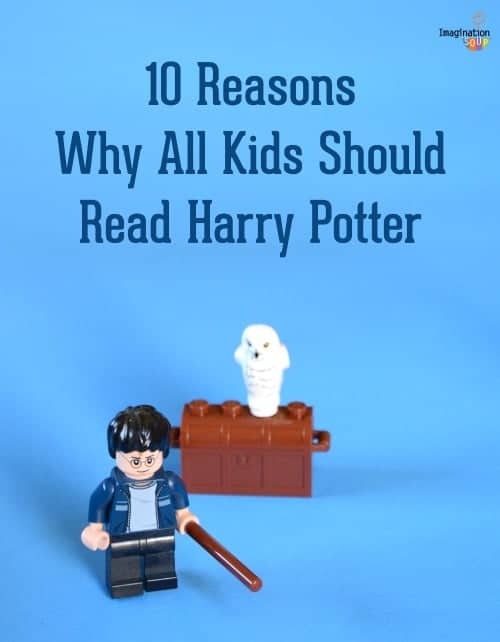
KEEP READING

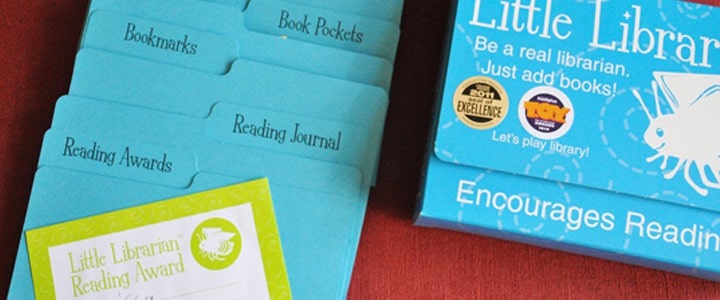
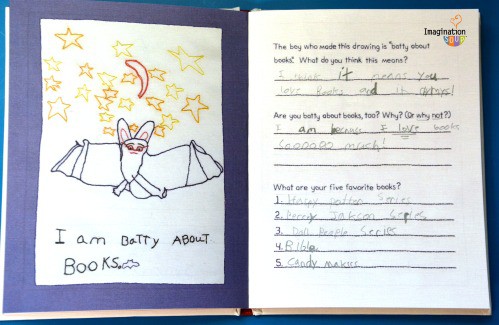

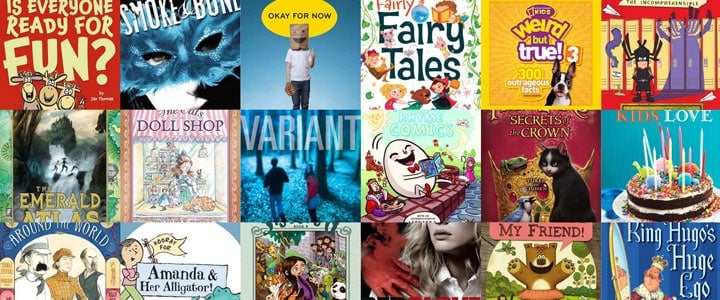
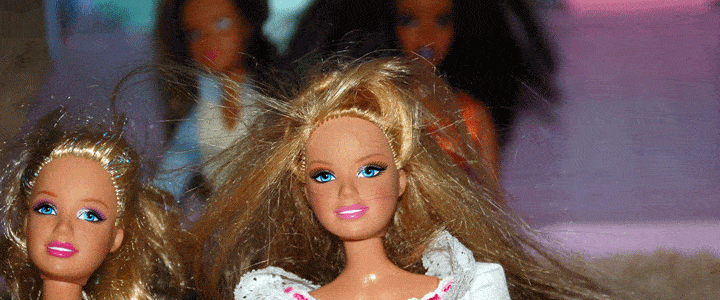
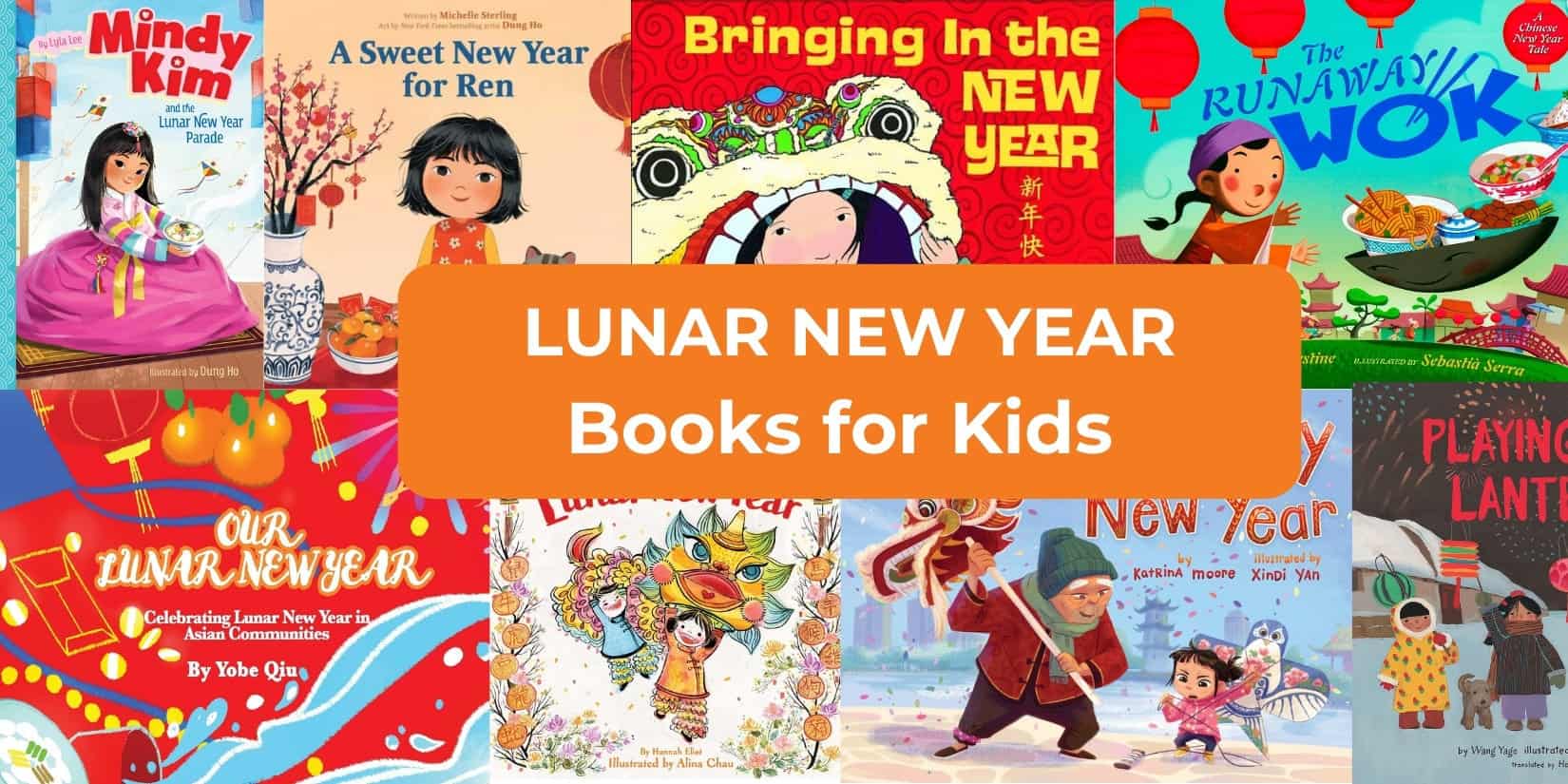
If you are Christian, or Catholic, whatever denomination you are, do not be afraid to let your kids read Harry Potter. The arguments that ‘it’s sorcery’ or ‘magic is from the devil’ are a bit silly in my opinion. I’ve heard people say ‘if you read Harry Potter you’ll get possessed!’ That is not how possession works. Real sorcery and witchcraft are a danger and should not be dabbled with, however, if you know this and you know that it is your responsibility to teach your children this, you have nothing to worry about. The problem is not that witches are evil, but rather it lies with distinguishing fiction from reality. The struggle between good and evil magic is found in various examples of literature. If you have ever read JRR Tolkien’s, a very Catholic man and author, The Lord of The Rings, you would know that there is magic in his books. Gandalf the Grey/ White uses magic. He is a wizard, and a very powerful one at that. The majority of the time he is seen as the wisest character whom everyone goes to for help, relying upon him to save the day and he does. There is also the presence of evil magic and sorcery within LOTR shown through the characters of Sauron and Saruman, both distinctly evil figures. C.S. Lewis’ The Chronicles of Narnia has many examples of Christian symbolism within it, and it too depicts a battle between good and evil magic. When looking at Harry Potter there is also a distinct battle between the forces of good and evil. Magic is simply the medium used in this particular story. It does not matter that the characters are using magic to fight one another. Without it, they are still people fighting for good and evil causes. The author, JK Rowling, may or may not be Christian, but regardless of that fact, the protagonists in her books still learn real life lessons. That is a fact. Some lessons learned are for example: standing up for yourself and what you believe to be right and true, being there and caring for your friends, not letting your past define who you are as a person but rather the choices you make right now, etc. There is a big difference between reading a book that has magic in it, and trying to conjure spells in real life. The point here, is that if your kids are going to read any fictional book, they need to understand that what is sometimes portrayed as being okay in fiction, will not always be okay in reality. If your child is bitten by a spider and then thinks it is a good idea to jump out of his second story window to try out his new ‘spidey powers,’ you would promptly tell him that that is not okay. However awesome a story Spiderman is, it is still fiction. The same is true for The Lord of The Rings, The Chronicles of Narnia, and Harry Potter, etc. It is all fiction. We are allowed to enjoy fiction, so long as it does not interfere with reality. Perhaps in that sense you should maybe wait until your child has a general grasp of that before letting them read the books, but reality is a topic most people grapple with even as adults (any philosophy student has experienced that confusion). There is no harm in reading the books first yourself if you believe that to be necessary. Maybe you will think that they are a bad example of literature and that there are better things your kids could be reading. The only reason I would hold my kids off from reading these books at a young age is because they are huge. Unless you really like reading, they could be daunting to anyone of any age. But just as you should not give up on reading a book because of its size, you also should not give up reading a book because of its inclusion of magic. You do not have to make your children read these books either. You are their parents, and that decision is up to your discretion. However, so long as it is not a ‘How to’ book on summoning the devil, I think you will be just fine.
The whole idea of Harry Potter as being “The fantastical, magical world of coming-of-age, adventure, and suspense ignites and improves a child’s imagination.” is wherein lurks the trouble with this series and does not make it fit for children to read. Not only the magic that is talked about but the sexual innuendo , and erotically suggestive scenes (Myrtle visiting Harry in the bathroom).
To explain the first part, for Christian parents who are careful about what they want and allow their children to read, it is an important reminder that magic means sorcery, which goes directly against the First Commandment. Sorcery is a grave evil, a direct offense against God Himself. Due to the widespread success of the book series and its endorsement all over the world, it may be easy to think that, “Hey this can’t be bad for my kids can it? I must be over reacting”. Where is the harm in this? The harm lies in the fact that our superheros in the book are sorcerers; spending years and years studying and becoming proficient in “magic”, which to remind you is against the First Commandment, regardless if it is “good” and not “dark” magic. The tales are presented as good triumphing over evil-the young wizard defeating the evil and dark voldemort. There is no mention of God whatsoever only magical spells to fix the problems and predicaments that the characters find themselves faced with. The works of Rowling herself were not malicious in intent, but it is hard to argue that these books are not Wiccan and therefore Anti-Christian and totally inappropriate for children to read. Why would you not have your children read truth filled literature that give real testament to friendship and overcoming adversity such as ‘Unbroken’ or ‘Number the Stars’. These are two examples of non-fictional books that are appropriate for children and have real life lessons all throughout them. The good, triumphs over the evil, but instead of relying on the false sense of magic, these books rely on Christ as the root of their strength in facing adversity.
I cant wait to recommend this site for so many parents wanting to know what their kids should read! Thank you!
thanks, Amy!
Awesome
Love It